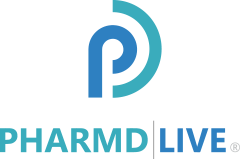In 2015, Primary Care Physicians became eligible to receive Medicare reimbursement for non-face-to-face Chronic Care Management (CCM) Services for patients with two or more chronic conditions under current procedural terminology (CPT) Code 99490. An additional CPT Code (99487) was added in 2017 for Complex CCM, enabling physicians to bill for additional 30 minute increments of non-face-to-face time every month for chronic care management.
CCM services include recording patient health information in the EHR, developing an electronic, accessible care plan encompassing all health issues, collaborating with external practitioners, providing access to care management services and managing transitions of care.
For practices and accountable care organizations (ACOs) with 500 Medicare beneficiaries enrolled in CCM services—this represents more than $200,000 of potential annual income while also impacting clinical outcomes.
But why have physicians hesitated to opt in? After all, most physicians are already providing abridged CCM services in the form of phone calls and care management outside of office appointments—but are not billing for them.
So what’s the issue?
Billing departments are tripping over red tape. The cumbersome reimbursement procedures weigh heavy—office infrastructure has to be developed, processes fortified and personnel hired and trained. Practices with outdated technology do not meet Medicare’s Electronic Health Record (EHR) requirements, therefore do not qualify for reimbursement.
Research illustrates patients with chronic conditions benefit from CCM services; yet, CMS reports only 100,000 reimbursement requests for approximately 35 million eligible beneficiaries.
CCM Services have become a priority of the Center for Medicare and Medicaid Services (CMS) for good reason—approximately two of three Medicare beneficiaries have multiple chronic conditions, which consume the lion’s share of healthcare spending. Some examples of chronic conditions include alzheimer’s disease and related dementia, arthritis (osteoarthritis and rheumatoid) asthma, atrial fibrillation, autism spectrum disorders, cancer, cardiovascular disease, chronic obstructive pulmonary disease, depression, diabetes, hypertension, infectious diseases such as HIV/AIDS.
Partnering with a third party administrator—such as PharmD Live—
can improve patient outcomes, cut administration costs and drive revenue—and prevents the need to hire additional practice staff. Practice physicians simply explain the benefits of CCM services during the annual wellness appointment and provide patients the option of enrolling. Once enrolled, PharmD Live creates customized care plans for each patient, provides 365/24/7 telephonic and virtual access to board-certified pharmacists, shares information securely with other providers and prepares billing reports for practices.
Some CCM services have an associated co-payment, which Medicare supplemental plans and Health Savings Accounts (HSAs) may cover.
The Medicare Access and CHIP Reauthorization Act (MACRA)—effective in 2019—presents a Merit-Based Incentive Payment System (MIPS) for Medicare Part B providers. A provider’s MIPS score—based on quality (30%), Resource Use (30%), Clinical Practice Improvement (15%), and Meaningful Use of Compliant EHR (25%)—will determine a provider’s Medicare reimbursement. MIPS score—ranging from 0 to 100—will determine whether the reimbursement is positive, negative or neutral.
PharmD Live’s collaborative model improves patient outcomes, cuts costs, optimizes reimbursements, and drives practice revenue. To learn more about incorporating PharmD Live solutions into your practice or accountable care organization, contact Ellery Plowman for a consultation.








